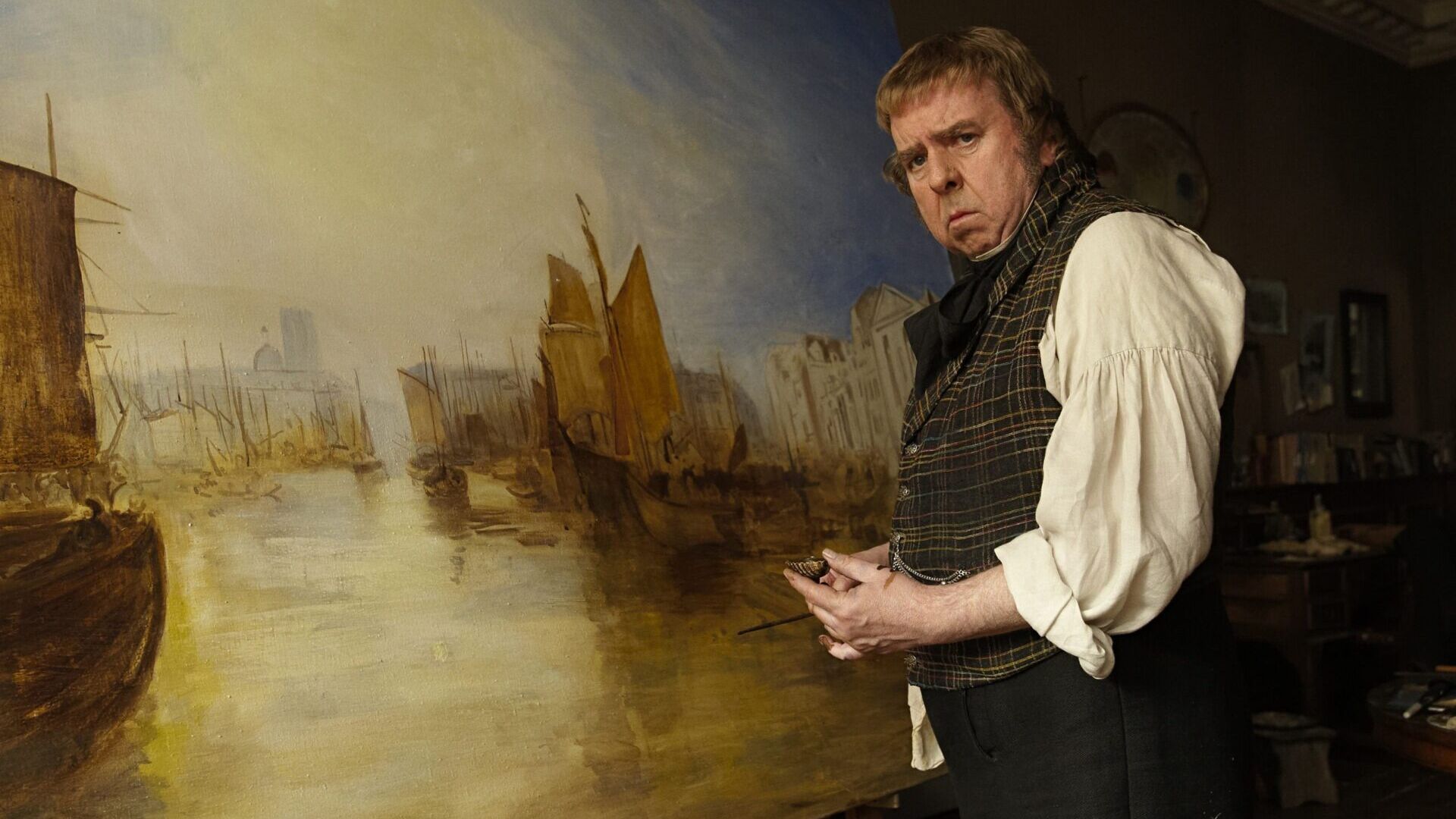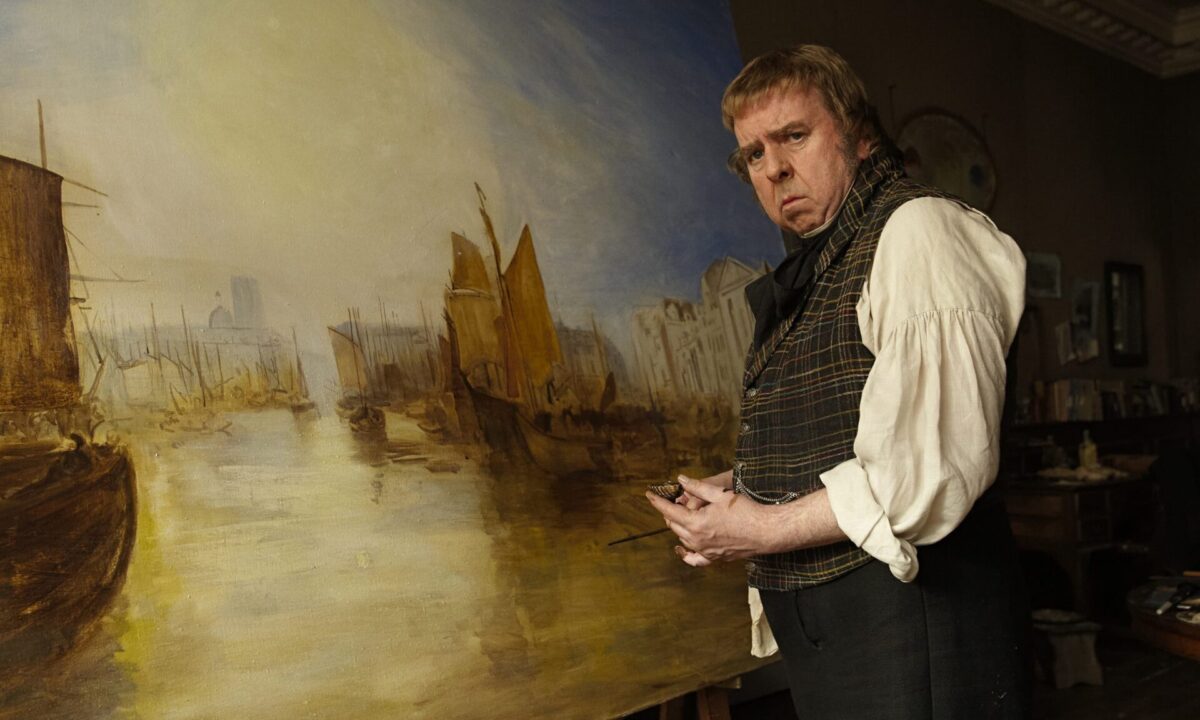What a monumental undertaking to tell the story of a master painter of historical significance, art and otherwise- an even bigger challenge to bring to life the story of British painter J.M.W. Turner, whose last quarter century of living was filled with quick-to-rapid deterioration amidst the modern evolving social swerve. In director Mike Leigh‘s film, Mr. Turner, Leigh mirrors the genius painter’s health and mental digressions along with the sweeping and evolving Aristocratic-bourgeois society, as Turner the surrogate stands as the post-modern death of art and of a time gone by itself.
Not many, apart from University art-school majors and the intelligentsia abroad, will likely be familiar with the portly, snot-snarling artist, played impeccably by Timothy Spall, who fully embodies whatever version of the man anyone would expect. Clocking in at a near three hour run-time, Spall is all gusto and intrigue throughout, throwing his weight around in scenes of personal loss (the early death of his father) and artistic flourish (when painting and waxing philosophic in high-society conversation about art itself, when he isn’t grumbling the other majority of the movie).
Although the film, subject matter, and effort might sound daunting to watch at best, it’s a story of death and societal change that comments on the trappings and loss that can even be seen today.
Rather than a traditional birth-to-burial biography, Leigh finds his movie’s theme wrapped up in Turner’s final stretch of life, taking place from 1775-1851. The gorgeous camera work in the English countryside introduces us to a Turner as organic and pure as the rolling hills themselves. Returning from a trip abroad, Turner’s otherwise fidgety and nervous mannerisms convey a sense of distracted brilliance, in the mundane trappings of life around him. We see his most personal vices-exercised, the death of his father William (Paul Jesson), the sexual use of his housemaid (Dorothy Atkinson), and the further sexualization of an innkeeper (Marion Bailey) who Turner commits in marriage to, all slow-burning and early on. This is a film that captures loss in measurement and exactness, slowly thrusting Turner into the fated and uncertain life changes to come.
Fine moments of Turner’s spiraling loss are captured, such as Turner’s first sitting for a new technology and form of art- the camera obscura- in terrible and awkward fashion- making for very heartfelt watching. It’s a film of study, of history and the human moments that fictionally fill it, which can read as so inauthentic in the context of what biographies attempt to do. But Leigh, like Turner, is a master himself, using fine actors, writing, and camera work, to mold a story as stable and permanent as a time that, ironically, begins to break down in the face of new modernity and wonderment in that early 1800’s turning point in Europe. Here again is where Leigh shines- the allusion to technology and economy that is only ever referred to in subtlety (steam trains that arrive suddenly), or seen in the changing background around the ever-dwindling figure, is a credit to how Leigh makes his statement about the death of a certain kind of man and mythology.
Although the film, subject matter, and effort might sound daunting to watch at best, it’s a story of death and societal change that comments on the trappings and loss that can even be seen today with incredible significance and timeliness. Mr. Turner is the kind of film that, the more committed and willing to take it on that you are, the more you will understand its fullest scope and artistry that is poured into it. The discipline and brilliance of the thing shows the point immaculately of how such a self-congratulating progressive-society often leaves behind people of yesterday’s brilliance in unfortunate forgetfulness.
Mr. Turner is in limited release now.
Ryan Rojas
Ryan is the editorial manager of Cinemacy, which he co-runs with his older sister, Morgan. Ryan is a member of the Hollywood Critics Association. Ryan's favorite films include 2001: A Space Odyssey, The Social Network, and The Master.


